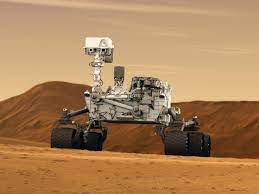The first patient to receive a miniaturized brain implant to treat Parkinson’s disease symptoms has described the improvements generated by the device as “amazing”.
Tony Howells, who had the deep brain stimulation (DBS) system fitted in November 2020, says that he can now walk several miles at a time and even play golf, neither of which were possible before his surgery.
Parkinson’s disease is a neurodegenerative disorder affecting the brain and body, leading to tremors, muscle stiffness, and cognitive decline. While there is no cure for the condition, DBS has shown promise as a treatment for motor dysfunction in some patients.
The technique involves the direct electrical stimulation of targeted brain regions, although the cost and complexity of inserting DBS devices mean that less than five percent of Parkinson’s patients worldwide currently have one. Existing systems include batteries that are too large to fit beneath the skull, typically placed in the chest and connected to the brain via wires that run up through the neck.
However, researchers at North Bristol NHS Trust in the UK are now conducting a clinical trial of a mini DBS system that is about one-third of the size of existing ones. The device contains a battery small enough to be implanted directly into the skull, where it can stimulate the brain without the need for any cumbersome cables.
It is hoped that the new simplified system will make the implantation surgery faster, cheaper and less complex, thus rendering DBS a viable option for more patients.
“The surgery was quick and to my amazement, when I woke-up I had no pain,” said Mr Howells. “The impact has been amazing, the dystonia which is a side effect from the medication has gone.”
“I can now walk two miles or more, whereas before DBS, I could get about 200 yards then I would have to rest,” he added. “I am back playing golf, not as well as I used to, but that’s probably down to old age catching up; but at least I’m back playing.”
The ongoing clinical trial will see 25 patients fitted with the new device and monitored for a year.
Commenting on this initial success, lead researcher Dr Alan Whone said “we are delighted with how this first case went in the operating theatre and with how the patient’s symptoms have been improved over the last year.”
“We are hopeful that if these findings hold-up, we will have a significant technical advance by which to improve Parkinson’s care across the world”.
Dr Whone told IFLScience that “DBS has been around since 1995 and more than 200,000 people have had this therapy to date. What we are evaluating is the benefit of a miniaturised DBS device which is easier to implant. We are not expecting better clinical outcomes than conventional DBS but we are assessing if the skull mounted battery approach enables faster and less complex surgery.”
Even if the trial is successful, however, the treatment will probably only be beneficial for about ten percent of Parkinson’s patients. Speaking to BBC News, Dr Whone expalined that “If you’re more elderly, or if you’ve got memory problems as part of your Parkinson’s, this wouldn’t be suitable for you.”
“But if you’re a younger person with Parkinson’s, who can have brain surgery and so on, then it becomes much more applicable to that group,” he said.
Related article:












